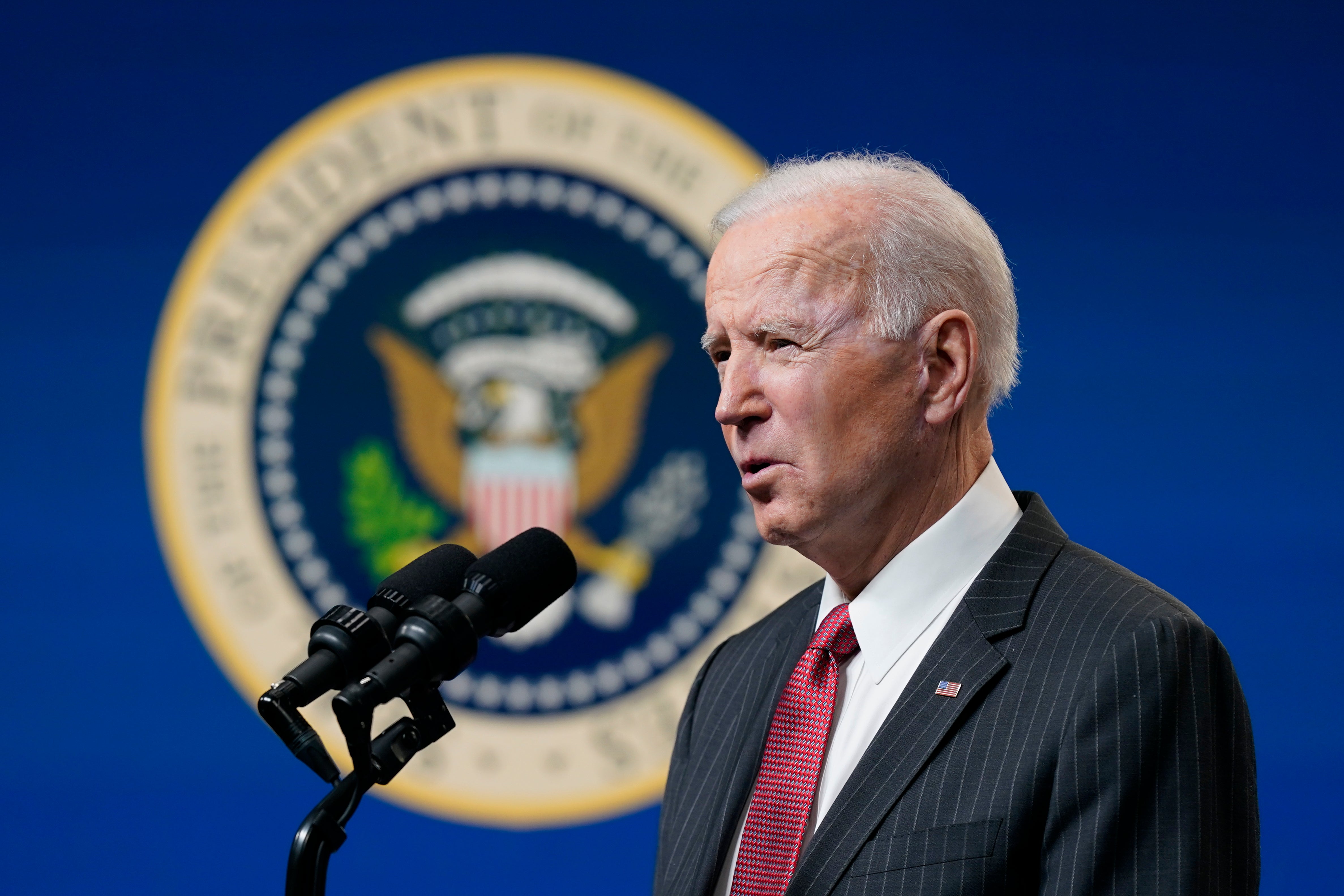Countries curb diplomatic ties, weigh sanctions on Myanmar
A growing number of governments are curbing diplomatic ties with Myanmar and increasing economic pressure on its military over the coup last week

A growing number of governments are curbing diplomatic ties with Myanmar and increasing economic pressure on its military over the coup last week that erased the fragile democratic progress in the long-oppressed Southeast Asian nation.
President Joe Biden said Wednesday he was issuing an executive order that will prevent Myanmar’s generals from accessing $1 billion in assets in the United States, and he promised more measures were to come.
The U.S. was among many Western governments that lifted most sanctions in the past decade to encourage democratic change as Myanmar's military rulers were taking gradual steps toward civilian rule — changes that proved temporary with the ousting of the elected government and detentions of Nobel Prize laureate Aung San Suu Kyi and others.
One of the strongest reactions came from New Zealand, which has suspended all military and high-level political contact with the country and pledged to block any aid that could go to its military government or benefit its leaders. It also placed a travel ban on its military leaders.
“We do not recognize the legitimacy of the military-led government and we call on the military to immediately release all detained political leaders and restore civilian rule,” Foreign Minister Nanaia Mahuta said Tuesday.
In Washington, Biden said Wednesday his actions were aimed at freezing U.S. assets that benefit Myanmar’s military leaders while maintaining support for health care programs, civil society groups and other areas that benefit the country’s people. The U.S. already has sanctions in place against some Myanmar military leaders over the killings of ethnic Rohingya Muslims during a crackdown in 2017 that sent hundreds of thousands of them fleeing into Bangladesh.
There has so far been no change to the level of U.S. diplomatic representation in Myanmar, where Thomas Vajda continues to serve as ambassador.
In Brussels, EU foreign policy chief Josep Borrell said European foreign ministers will meet Feb. 22 to review the 27-nation bloc’s relations with Myanmar and explore ways to increase economic pressure. Its options could include sanctions targeting individuals and businesses owned by Myanmar’s military as well as cuts in development assistance.
Since 2014, the EU has granted Myanmar almost 700 million euros ($850 million) in support. Borrell said the EU’s special system for granting least-developed countries duty-free and quota-free access to all products except arms and ammunition could also be reassessed.
“We now need to develop a robust response to this unacceptable seizure of power, which reverses 10 years of democratic transition,” he said, adding that the review would examine “how closely we work with the government and its institutions from a legal, financial and technical perspective, as well as the impact on beneficiaries.”
The U.N. Human Rights Council, the 47-member-state body based in Geneva, has scheduled a special session on Friday to consider “the human rights implications of the crisis in Myanmar.”
__
AP writers Nick Perry from Wellington, New Zealand, Lorne Cook from Brussels, and Matthew Lee from Washington contributed to the report.
Bookmark popover
Removed from bookmarks